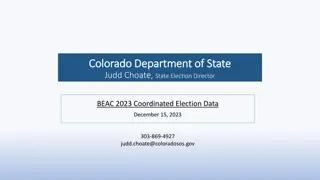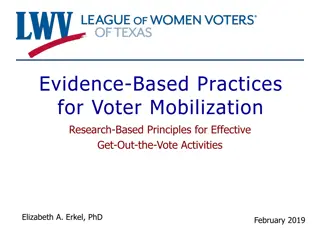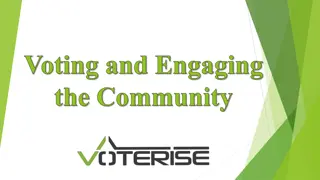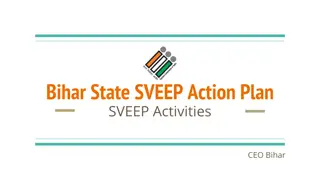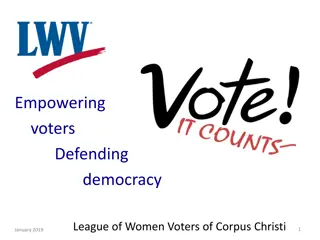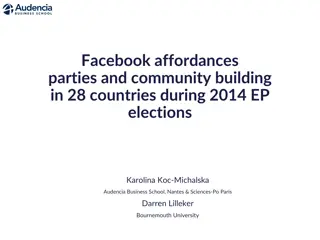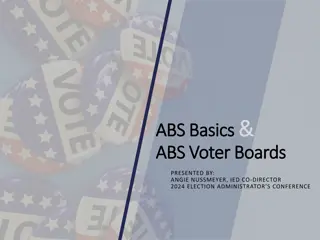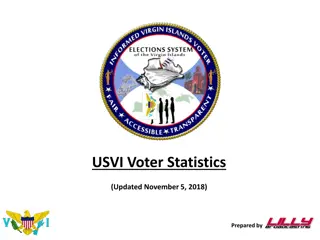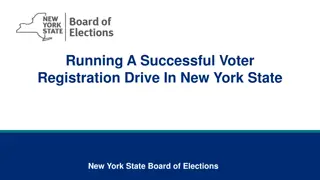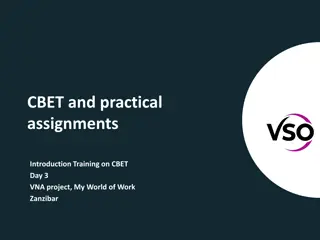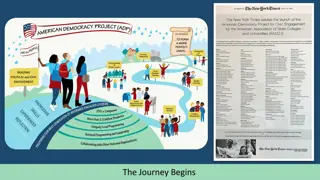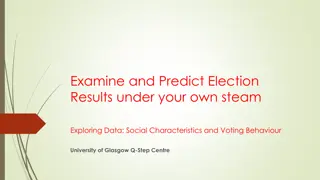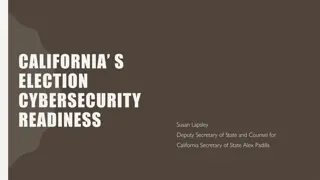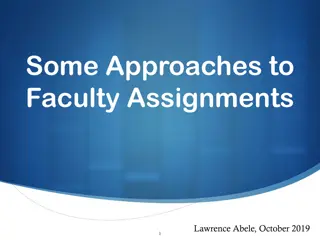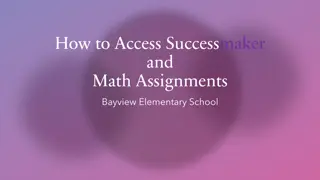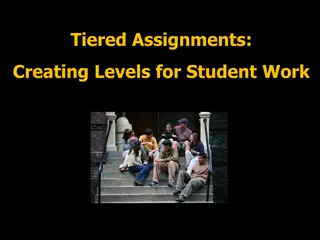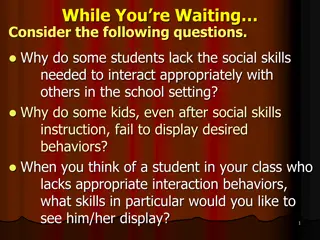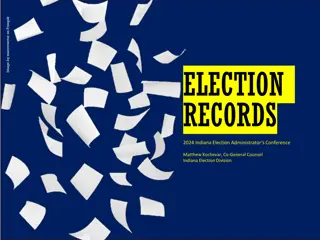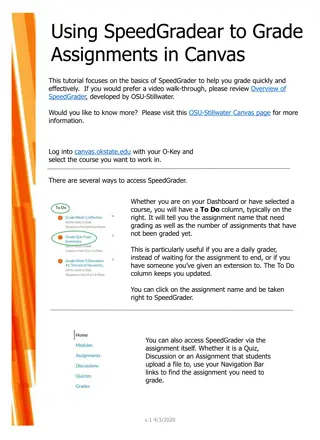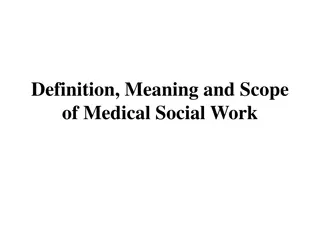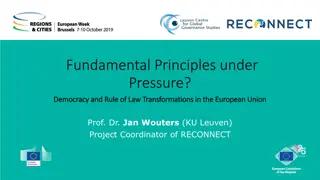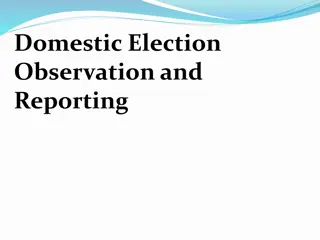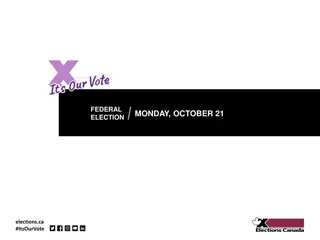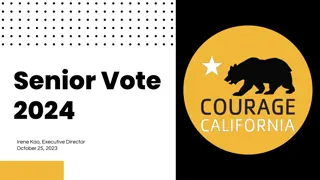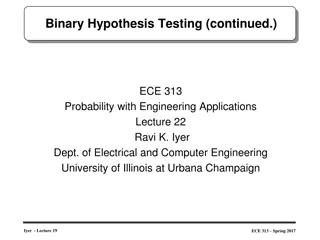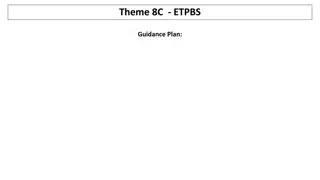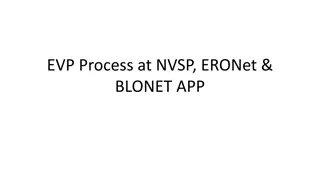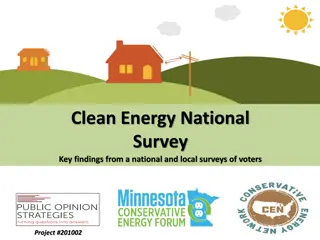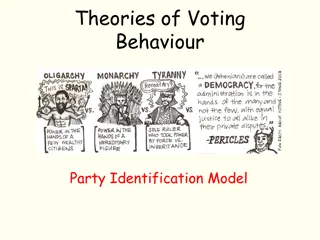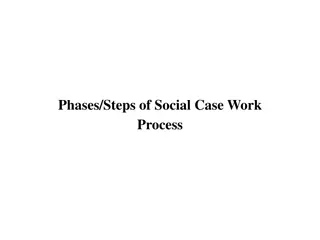Enhancing Voter Engagement: Activities and Assignments for Social Work Students
Explore a variety of engaging activities and assignments designed to enhance voter engagement among social work students. From webinars and recorded programming to researching voting rules and developing social media plans, these activities aim to equip students with the knowledge and skills necessary to promote voter participation in their communities. Embrace nonpartisan approaches and leverage resources to encourage informed voting decisions and active civic participation.
Download Presentation

Please find below an Image/Link to download the presentation.
The content on the website is provided AS IS for your information and personal use only. It may not be sold, licensed, or shared on other websites without obtaining consent from the author. Download presentation by click this link. If you encounter any issues during the download, it is possible that the publisher has removed the file from their server.
E N D
Presentation Transcript
Voter engagement activities for students to use in field
Suggested activities for schools of social work Assign webinars and/or recorded programming and readings to students about voting. For ideas, go to the resource page on votingissocialwork.org Use the sample assignments on the next page to build skills, knowledge and competence on voter engagement. Encourage students to add voter activities to their field education contracts. Our sample list ties these activities to all 9 core competencies in social work education. Add programming on voting rights and engagement, such as hosting a free screening of the movie Rigged: the Voter Suppression Playbook; watching the documentary the Power Broker, hosting panel discussions with voting rights advocates, civic organizations, and/or election officials. Support students on election day by giving them time to vote and/or work at the polls.
Sample assignments for students 1. Using the worksheet and information on votingissocialwork.org, find the rules and deadlines around voting in your state, including: a) Rules and deadlines for voter registration b) Policies that apply to special populations such as those experiencing homelessness, individuals with a felony conviction, survivors of intimate partner violence, long-term care residents, Trans individuals, etc) c) How people vote in your state: hours, early voting, absentee voting d) Voting rights and numbers 2. Look up the rules around voting with a felony in your state. How can we educate social workers and communities to address the misinformation. 3. Find nonpartisan information on the candidates running for state or local office. Is information easy to find? 4. Develop your own social media plan to share voting resources and information for you or your organization. 5. Using the worksheet on the votingissocialwork.org website, look up who represents you at every level of government. Create a contact sheet with email addresses and phone numbers for easy access. 6. Look up voter turnout statistics for local and state elections for your town. What was the overall turnout rate for your town in each of the elections? How does that compare to a presidential year? Can you get your town/city s voter turnout detail by voting district? What does that tell you about political power there? Why do you think there are variances? 7. Using the NASW s Code of Ethics and article The Role of Clinical Social Workers on Voter Engagement Efforts, discuss how nonpartisan voter engagement connects to the mission, services and impact of your agency.
Sample assignments cont. 8. Use the Organizational Assessment and step by step guide for integrating voter engagement to develop a plan to integrate nonpartisan voter engagement into the services and culture of your nonprofit, agency, organization, or school. Plan should recommend ways the organization can: a. Help individuals register to vote; b. Share information on where/when/how to vote; c. Share information about voting for special populations: (e.g., individuals with a felony record, survivors of violence, persons experiencing homelessness, long-term care residents, etc.); d. Support informed voting by sharing information on candidates, elected officials and government; e. Remind people to vote in all elections and why their vote matters. * Notes: Think about this as a working document for your agency. You may submit this completed form as your plan. Include details as well as open questions that come up. If you are not in field, choose an agency or organization with which you have personal or professional experience. not in field, choose an agency or organization with which you have personal or professional experience. If you are in field, share with your supervisor and discuss. If you are 9. Register at least five (5) people to vote. Note: You are not required to register people at your agency. You may choose any three people to register, including people in your personal network. 10. Contact five (5) people to encourage them to participate in the 2020 census. 11. Write and submit a short reflection, 1-2 double-spaced pages in length that answers the following questions: Who did you choose to register and why? What was their reaction? Did you encourage people in your networks to participate in the 2020 census? What was their response? What platform or process did you use? How did you feel about the experience and the tool you chose? Did you feel comfortable? Do you think voting is important to social work practice and impact? Should all agencies be required to help people to vote? How does voting connect with social justice movements? How would you address someone who says My vote doesn t matter? Go to VotingIsSocialWork.org for more information and resources.
Voting activities connect to all 9 CSWE core competencies and span micro/mezzo/macro practice You can find this document here on votingissocialwork.org.
For voting resources and information: go to www.VotingIsSocialWork.org or contact: Tanya Rhodes Smith, Instructor in Residence & Director Nancy A Humphreys Institute for Political Social Work University of Connecticut School of Social Work Tanya.smith@uconn.edu


